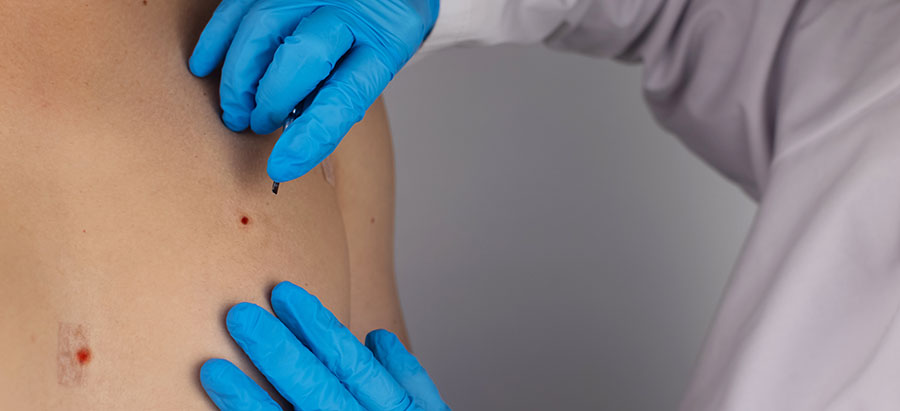
Skin tumours occur due to an overgrowth of abnormal cells or multiple skin components on the skin's surface. They can often be harmless but, in some cases, can lead to melanoma. Dr Tinashe I Maphosa encourages patients to visit if they discover new or changing growths on the skin so he can biopsy the area and confirm the diagnosis.
Skin tumours result from cells that have multiplied and continue to grow disorderly. Typically, cells have a cycle of turnover where old ones die, and new ones form, but when this process is interrupted, it leads to rapid cell growth.
The leading cause of this is overexposure to UV rays from the sun. Skin tumours that turn cancerous are most commonly due to overexposure to UV rays from the sun. Other reasons you may develop skin tumours are:
Not all skin tumours are cause for concern, but you should always take the necessary precautions to ensure that you don't develop skin cancer.
Three primary types of skin cancer cause tumours.
Basal and squamous cells are the most common types of tumours and can be treated when caught early. Melanoma, however, is rarer but more deadly and requires early intervention.
After extensive assessment and a biopsy, Dr Maphosa will advise whether skin tumour removal is necessary. All skin tumours can be removed, whether dangerous or not, but it depends on the location and severity of the tumour.
Dr Maphosa provides several procedures to remove skin tumours:
